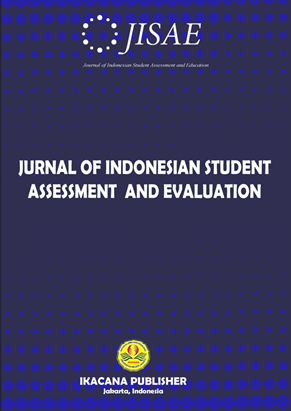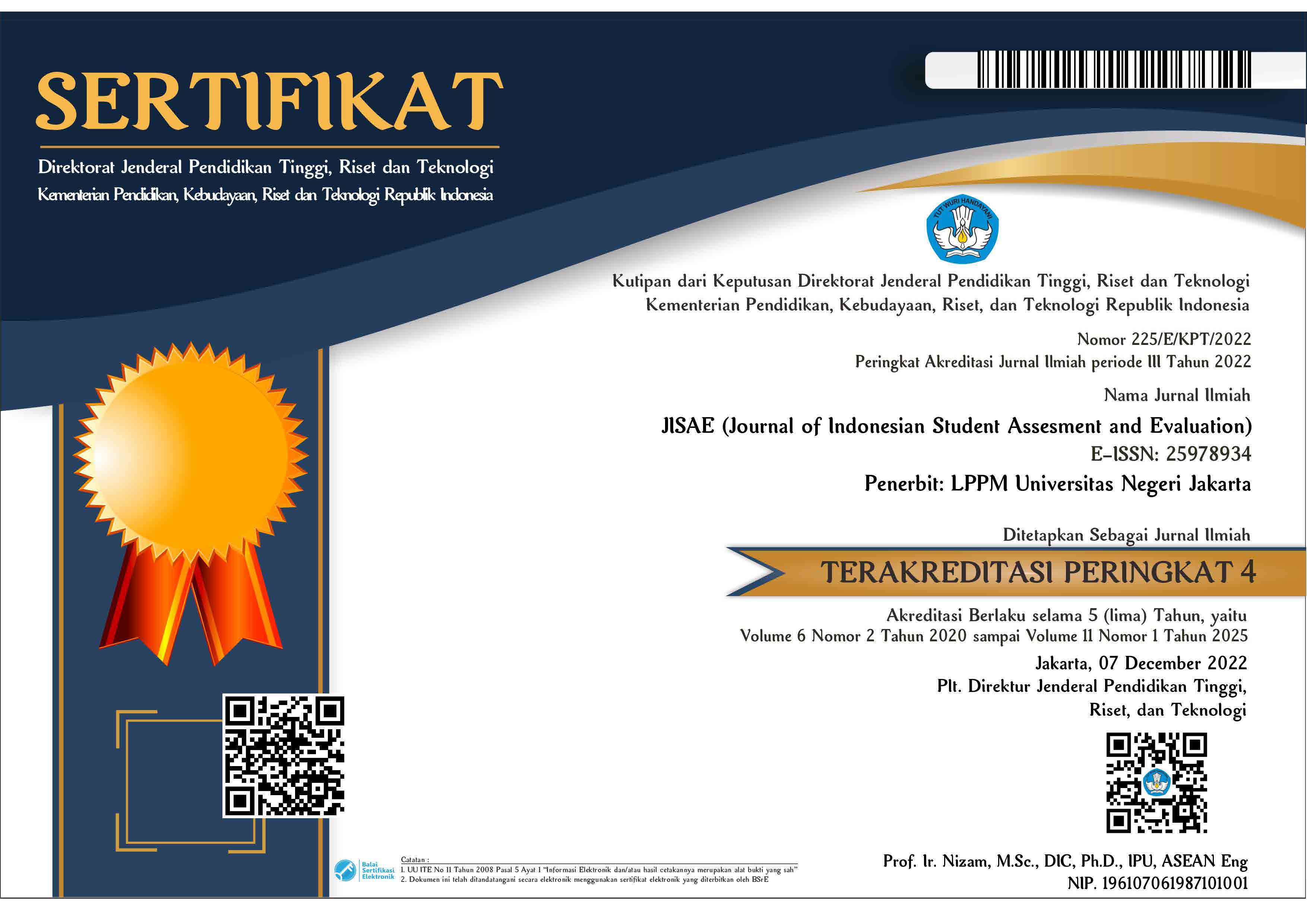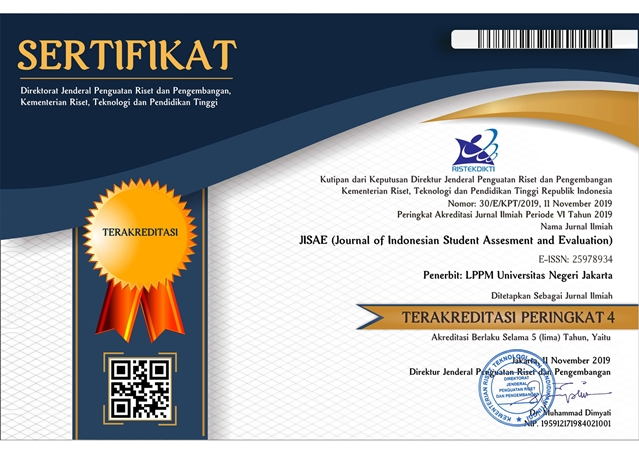A STUDY ON SELF PERCEIVED ASSESSMENT SKILLS OF BASIC EDUCATION SCHOOL TEACHERS
DOI:
https://doi.org/10.21009/jisae.v6i2.15561Keywords:
self perceive, assessment skill, performance assessment, ethicAbstract
The main of this study was to investigate the self-perceived assessment skills of basic education teachers. A total of 228 teachers from primary, middle and high schools (public and private schools) at Pyawbwe Township in Myanmar participated in this study. Descriptive research design and survey method were used in this study. An instrument: Self-Perceived Assessment Skills Questionnaire was used to collect required data. According to the results, there were significant differences in teachers’ constructing, administering assessment skills, and performance assessment skills by gender at 0.05 levels. Similarly, there were also significant differences in teachers’ grading skills and overall self-perceived assessment skills by gender at 0.01 levels. Besides, it was also found that there were significant differences in teachers’ performance assessment skills and grading skills by school type at 0.05 levels. Moreover, in the comparison of teachers’ self-perceived assessment skills by position, the mean score of junior teachers is the highest and the mean score of primary teachers is the lowest. Similarly, in the comparison of teachers’ self-perceived assessment skills by service, the mean score of teachers who have above 30-years service is the highest. Finally, this study expects that the school administrators can get any idea to recover and promote the teachers’ assessment skills with the cooperation of experts.











